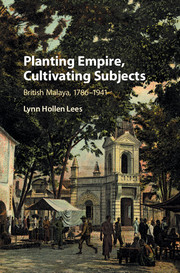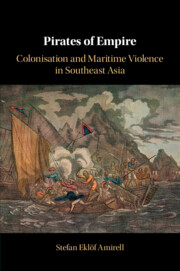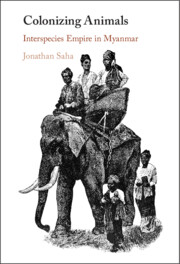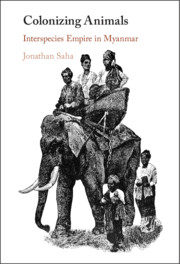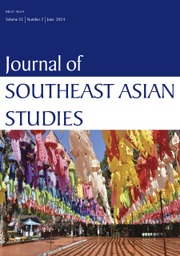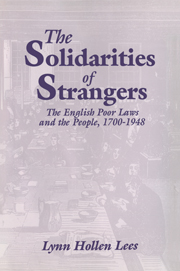Planting Empire, Cultivating Subjects
Planting Empire, Cultivating Subjects examines the stories of ordinary people to explore the internal workings of colonial rule. Chinese, Indians, and Malays learned about being British through the plantations, towns, schools, and newspapers of a modernizing colony. Yet they got mixed messages from the harsh, racial hierarchies of sugar and rubber estates, and cosmopolitan urban societies. Empire meant mobility, fluidity, and hybridity, as well as the enactment of racial privilege and rigid ethnic differences. Using sources ranging from administrative files, court transcripts and oral interviews to periodicals and material culture, Professor Lees explores the nature and development of colonial governance, and the ways in which Malayan residents experienced British rule in towns and plantations. This is an innovative study demonstrating how empire brought with it both oppression and economic opportunity, shedding new light on the shifting nature of colonial subjecthood and identity, as well as the memory and afterlife of empire.
- Proposes a more complex view of colonialism that takes into account shared sovereignties, multi-ethnic populations, and widely different styles of governance
- Situates the history of British Malaya in its global context, recognizing its importance to the Indian Ocean and the Southern Pacific areas, as well as the world economy
- Demonstrates the impact of British rule on ordinary people as they migrated long distances into a frontier area
Reviews & endorsements
'Originally conceived as two separate manuscripts, Lees' monograph uses Ho Enseng’s earlier notion of empires as hybrid spaces as a launching point to compare rural and urban lifeworlds under colonialism. Employing British Malaya as a case study to interrogate the ‘internal workings’ of colonial power, the author convincingly demonstrates that relationships between rulers and the ruled were as complex as they were conflicted. … The questions she asks will interest social historians working on imperialism, urbanization, migration, labour, and commodity production: questions regarding the extent to which colonialism nurtured social mobility, cross-cultural learning, and new belongings within diasporas.' Geoffrey K. Pakiam, Sojourn: Journal of Social Issues in Southeast Asia
'Planting Empire, Cultivating Subjects is a rich and valuable history of colonial Malaya.' Sanjay Krishnan, Victorian Studies
‘Lees’s Planting Empire, Cultivating Subjects is a rich and valuable contribution to the historiography of British colonization in Southeast Asia … This monograph is a must-read for scholars interested in British colonial rule in Southeast Asia and the nature of British subjecthood.’ Raymond Hyser, H-Environment
Product details
February 2018Hardback
9781107038400
374 pages
235 × 157 × 20 mm
0.73kg
Available
Table of Contents
- Introduction
- Part I. Nineteenth-Century Foundations:
- 1. The birth of plantation colonialism
- 2. Body politics in a plural society
- 3. New towns on the Malayan frontier
- 4. Urban civil society
- Part II. The Early Twentieth Century:
- 5. Rubber reconstructs Malaya
- 6. Cosmopolitan modernism in Malayan towns
- 7. Managing Malayan towns
- 8. Multiple allegiances in a cosmopolitan colony
- 9. Epilogue: remembering empire
- 10. Bibliography.

